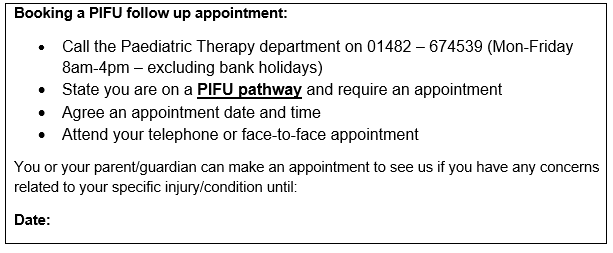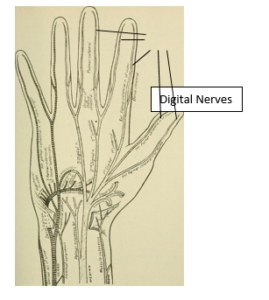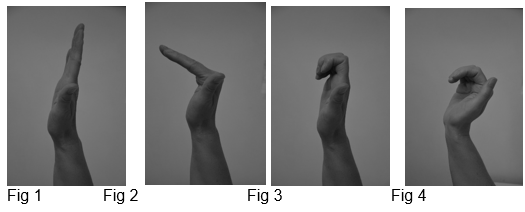- Reference Number: HEY-1369-2023
- Departments: Paediatrics, Physiotherapy, Therapies
- Last Updated: 1 August 2023
Introduction
This leaflet has been produced to give you general information. Most of your questions should be answered by this leaflet. It is not intended to replace the discussion between you and the healthcare team, but may act as a starting point for discussion. If after reading it you have any concerns or require further explanation, please discuss this with a member of the healthcare team.
What is a Patient-Initiated Follow-Up (PIFU) pathway?
A patient-initiated follow-up (PIFU) means that we will not routinely book you an appointment, instead we are putting you in control of making your own appointments at a time when you need them most, within a given timeframe.
How does PIFU work?
You will have been given this leaflet because your healthcare professional is happy that you do not need to see them again unless you have a problem. If you do have any problems, you can contact the Paediatric Therapy department on the given telephone number and they will arrange an appointment, either by telephone or face-to-face if it is needed. You will be told how long after your injury that you can contact the Paediatric Therapy department, on the PIFU pathway if you need to be seen.
When should I call for a PIFU?
You can call to make an appointment if you
- are not improving to a level that was expected
- have worsening symptoms relating to your injury/condition
- have a “flare-up”
Please note, you can only initiate a PIFU appointment for the specific injury/condition you were originally referred to the Paediatric Therapy service for.
When should I not use PIFU?
- If your concern is related to different injury/condition
- If the specified time period has lapsed, please contact your GP.
- If you need urgent medical advice you should contact your GP or NHS111.
What if I don’t need a PIFU follow-up appointment?
You do not have to arrange an appointment if you feel it is not required. If you don’t contact us to book an appointment within the specified timeframe, the PIFU will expire and you will be discharged back to the care of your GP. We will not contact you to book a PIFU appointment – it must be initiated by you.

What is a digital nerve?
There are 2 digital nerves in each of your fingers and thumb.

They are positioned one on each side of the finger on the palm side of the hand. These nerves pass messages to your brain about what you can feel. They tell you when something is hot, cold, sharp, blunt, hard or soft. They also help you recognise objects by touch, without seeing it, for example feeling for keys in your pocket.
What happens when the digital nerve is injured?
When the nerve is injured, the most obvious thing you will notice is numbness.
If only one nerve is affected, the fingertip will be numb on one side, but not the other.
What happens during surgery (digital nerve repair)?
The nerve is like a tiny electric cable, with an outer tube and thousands of thin fibres running through it. The surgeon will repair the outer tube, but the tiny fibres inside will die off from the level of the cut to the fingertip. If the nerve is not repaired, it will not recover, and may form a very painful lump called a neuroma.
What happens following surgery (nerve recovery)?
Initially following surgery the wound will heal and form a scar.
A few weeks after the nerve has been repaired, the tiny fibres will very slowly begin to regrow. It may take many months for the fibres to reach the fingertip, so the finger is likely to remain numb for quite some time after the operation. You may also experience some strange sensations in your hand, such as pins and needles, tingling or electric-type shooting pains. All of these sensations are normal after a nerve repair.
Wound management following surgery
Following your visit to trauma clinic a follow up appointment may have been arranged for you to attend the trauma clinic at HRI or the plastics dressing’s clinic at CHH. If not you will have been advised to attend at your own GP practice for the nurse present to redress your wound. This appointment should take place 7 days following the date of your surgery.
Signs and symptoms of infection to look out for
If the wound is swollen, red, or hot to touch, or has any discharge or a foul smell coming from it you may have an infection. In these cases we advise you seek medical attention from either a walk-in centre or your GP, particularly if this is associated with you feeling unwell. Alternatively you can contact the trauma clinic at HRI on 01482 674509.
Swelling post-surgery
Swelling is a normal response to injury and surgery, but can cause pain and limit movement. To help reduce this:
- Try to keep your hand elevated as much as possible, at least for the first 5 days.
- Try to keep your fingers and thumb moving as much as you are able to, within the dressing.
The swelling may persist a number of months, this is a normal part of the healing process. You should keep your fingers elevated where possible and complete your exercises in this elevated position.
Scar massage and desensitisation
Once the wound has healed it is important to start touching and massaging the scar.
Firmly massage the scar with unperfumed cream. Massage across the scar line in circular movements using deep and firm pressure. This ensures that the scar does not stick to the underlying surface, and helps the structures under the skin to move freely, as well as helping the scar to soften and flatten.
- Massage the scar 4 times a day for about 5 minutes.
- If you are experiencing any scar sensitivity or abnormal sensations, scar massage is especially important and helpful.
- Touching, tapping and exposing the scar to different textures can help to normalise the sensation as the numbness recovers and should help to reduce any sensitivity.
Please note while you have a lack of sensation in your hand, you will need to be very careful when cooking and holding sharp objects not to burn or cut your fingers.
Exercise and function post-surgery
The digital nerves do not directly affect your movement and therefore should not affect your ability to use the affected finger in everyday activities.
As long as there are no other injuries (e.g. to a tendon) then you should recover your normal movement, however in the early stages you may be limited by discomfort from stitches and swelling.
Exercises to complete are as follows:
Straight: Make sure all joints are pointing fully straight, especially the joint in the middle of your finger (Fig 1)
Platform: Bend at the knuckles but keep the fingers straight (fig 2)
Hook fist: Keep your knuckles straight. Make a ‘scratch’ or ‘claw’ movement to bend both joints on the fingers. (Fig 3)
Full fist: Curling all fingertips into your palm (Fig 4)

Repeat 5-10 times every 2-3 hours
When should I call for a Patient Initiated Follow Up (PIFU) appointment?
As discussed it is normal to feel some discomfort as the wound heals and this can take a number of weeks. Changes in sensation is also normal and can take up to 6 months. However, you should contact for a PIFU appointment at any time:
- If you feel your pain or swelling is worsening
- If you feel your movement or function is worsening
Or 4-6 weeks post-surgery
- If you have pain that is persistent and you rate this between 7 – 10 out of 10 with 0 being no pain and 10 being the maximum.
- If you have heightened sensation to light touch/course touch/vibration or deep pressure that is not the same as the unaffected side
- If you have not regained full range of movement of the affected finger and this is impacting on your ability to complete everyday activities.
If we do not hear from you 3 months following your surgery date we will assume that you no longer require any further intervention and will be discharged from the PIFU pathway. If you have further problems with your hand after this date please contact your GP practice
Should you require further advice on the information contained in this leaflet, please contact the Paediatric Therapy Department on telephone: 01482 674539.
This leaflet was produced by the Paediatric Therapy Team, Hull University Teaching Hospitals NHS Trust and will be reviewed in (August 2026)
General Advice and Consent
Most of your questions should have been answered by this leaflet, but remember that this is only a starting point for discussion with the healthcare team.
Consent to treatment
Before any doctor, nurse or therapist examines or treats your child, they must seek your consent or permission. In order to make a decision, you need to have information from health professionals about the treatment or investigation which is being offered to your child. You should always ask them more questions if you do not understand or if you want more information.
The information you receive should be about your child’s condition, the alternatives available for your child, and whether it carries risks as well as the benefits. What is important is that your consent is genuine or valid. That means:
- you must be able to give your consent
- you must be given enough information to enable you to make a decision
- you must be acting under your own free will and not under the strong influence of another person
Information about your child
We collect and use your child’s information to provide your child with care and treatment. As part of your child’s care, information about your child will be shared between members of a healthcare team, some of whom you may not meet. Your child’s information may also be used to help train staff, to check the quality of our care, to manage and plan the health service, and to help with research. Wherever possible we use anonymous data.
We may pass on relevant information to other health organisations that provide your child with care. All information is treated as strictly confidential and is not given to anyone who does not need it. If you have any concerns please ask your child’s doctor, or the person caring for your child.
Under the General Data Protection Regulation and the Data Protection Act 2018 we are responsible for maintaining the confidentiality of any information we hold about your child. For further information visit the following page: Confidential Information about You.
If you need information about your child’s (or a child you care for) health and wellbeing and their care and treatment in a different format, such as large print, braille or audio, due to disability, impairment or sensory loss, please advise a member of staff and this can be arranged.

